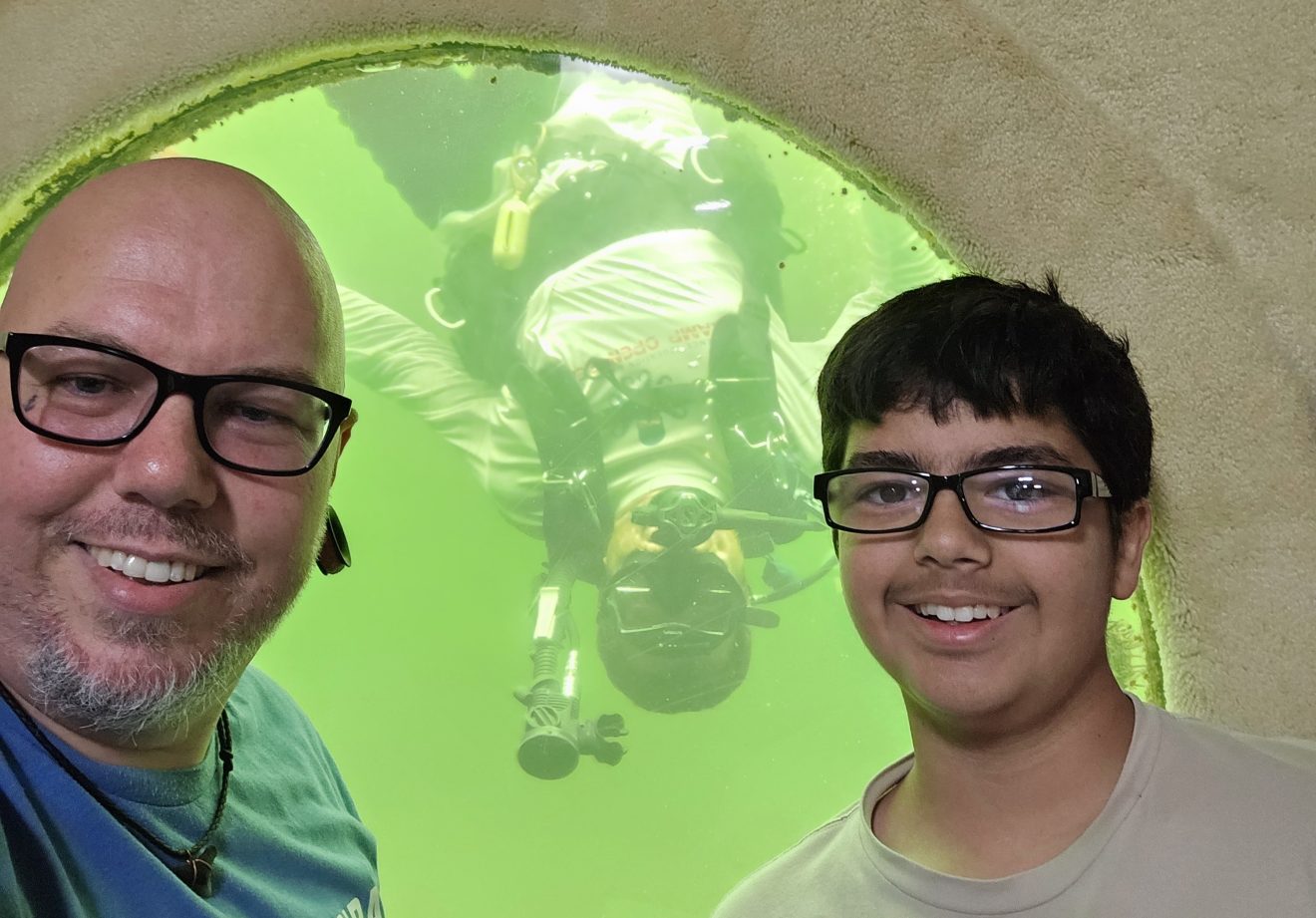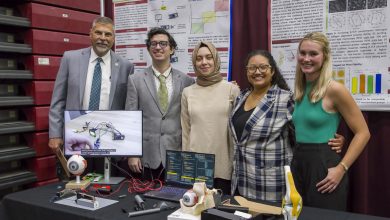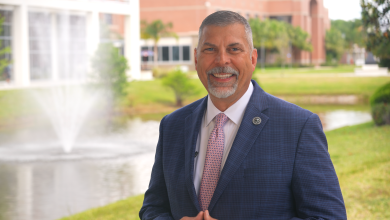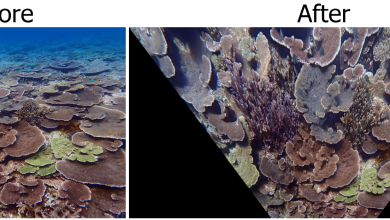Under the Sea
A Florida Tech oceanography student and researcher was recently part of a historical event taking place under our seas.
Anesti Vega was invited and sponsored by the Marine Resources Development Foundation (MRDF) to stay overnight with Joe Dituri, Ph.D., a biomedical engineer, retired Navy diver and associate professor at University of South Florida, as part of Dituri’s successful attempt to break a Guinness World Record for time spent in a fixed underwater habitat. The previous record was 73 days, and Dituri will conclude 100 days at Jules’ Undersea Lodge in Key Largo on June 9.
Known as Project Neptune 100, the mission conducted 30 feet under the water combined research and ocean conservation outreach. (It was a hit with the media.) Dituri received visits from local schoolchildren on field trips to get them excited about science, technology, engineering and math (STEM) pursuits. He also taught USF courses and interacted with noted marine scientists who came down to conduct livestreamed conversations.
That included Vega, who was in the habitat for 24 hours in early May.
The opportunity to spend time in an underwater habitat has been a long time in the making for Vega. In 2019, he was the executive director of a nonprofit called USX, which focused on getting military veterans connected with STEM field research in remote or austere environments. USX was planning a research expedition to another underwater habitat called Aquarius, run by Florida International University. However, four days before they were supposed to go, Tropical Storm Nestor put an end to the plans. The habitat was shut down until late last year.
A different opportunity would arise, this time sparked by an unrelated email to Dituri.
“In his reply, he said, ‘Yeah, I’d love to be able to talk with you more about it. I’ll have more time once I’m underwater,’” Vega said. “I saw in his email signature, ‘Project Neptune 100,’ so I clicked on it, and I was like, ‘Oh man, this project is really cool, and I’d love to be part of it if. I don’t know in what capacity, but if there’s any way I can help, let me know.’”
After Vega got in touch with the MRDF, which organized Project Neptune, he was added to the schedule to visit the underwater habitat.
Getting there provided a surreal experience for Vega and his 14-year-old son Geo, who has been diving since he was 8. The two dove down about 30 feet to the lodge and entered the facility via its moon pool, an opening also known as a wet porch that gives access to the lodge. After getting cleaned up and settled into the building, Vega and his son talked with Dituri about Dituri’s physiological research conducted in the habitat, recorded video and took pictures.
Vega said he didn’t really notice a difference being in the habitat compared to being on land, so much so that there were moments he would reference something back home as if he was down the street from his house and not beneath the surface of the ocean. Seeing scuba divers pass by the habitat was a cool experience as well.
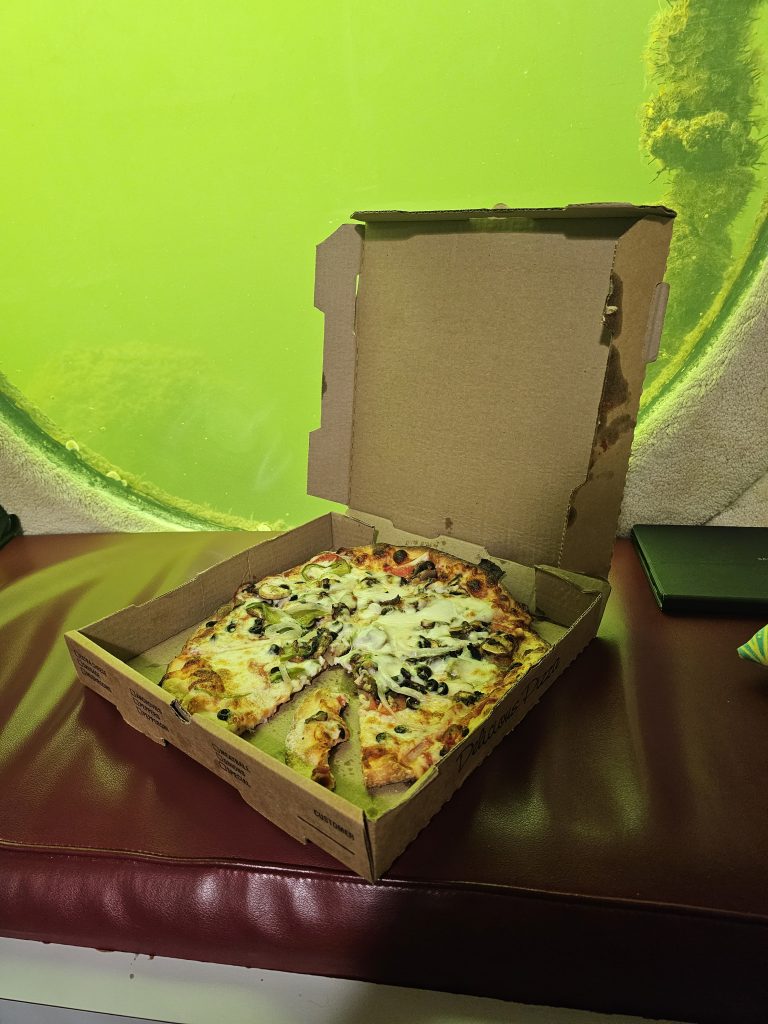
Among the unique experiences was a dinner of take-out pizza. Delivered by Mission Director Thane Milhoan, the pie was transported the same way clothing, equipment and other necessities were: in pressurized, waterproof containers.
Beyond the meals, Vega was setting up and conducting livestreams. He also took time in the evening to call loved ones and chat one-on-one with them. In true Florida Tech student fashion, Vega also had to finish up a last-minute homework project for a course that was due by the end of the semester before going to bed.
Any other down time was spent staring out the window and taking it all in, greeting guests that would pop into the habitat, and posting updates to social media for the nonprofits Vega was working with. (Geo played Minecraft on his tablet while his father was livestreaming.)
But not long after he arrived, Vega had a moment of realization about the opportunity taking place.
“It wasn’t until about maybe almost an hour in the habitat before things just kind of quieted down, and we were all just comfortable with some silence, where I was able to just relax a bit and just be in the moment to be like, ‘I’m breathing air in this big old room, and I’m underwater. This is wild,’” Vega said. “Just trying to, I don’t know, wrap my head around that. It was pretty surreal. My son, on the other hand, was just like, ‘Oh yeah, this is cool.’ He was a lot more nonchalant about it, and I’m like, ‘You’re going to appreciate this when you’re older, I promise.’”
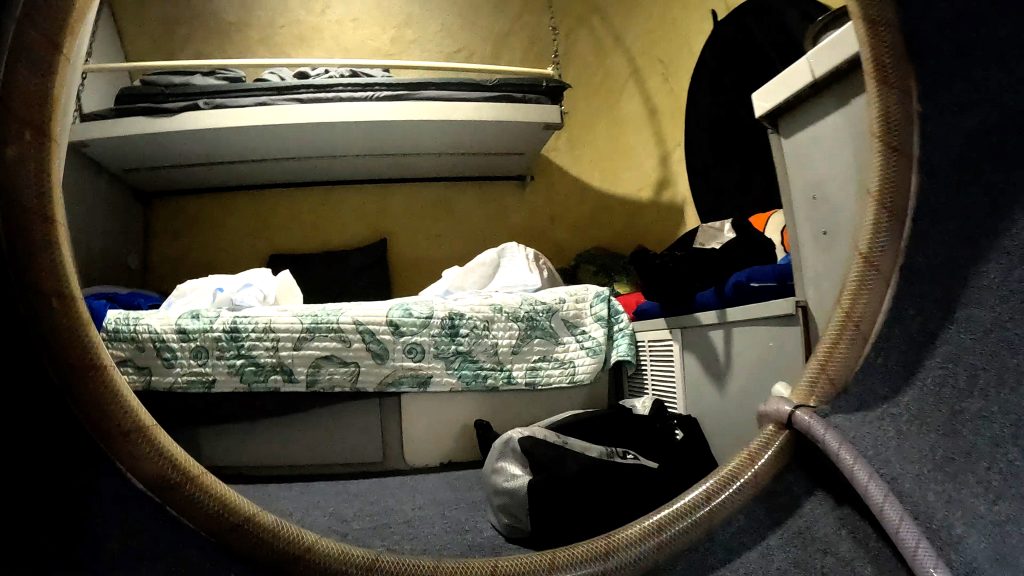
The opportunity to be a part of Project Neptune 100 is in keeping with the work Vega is doing to shine a light on underrepresented communities in the diving sector. Through his work with Diversity in Aquatics, the American Academy of Underwater Sciences and other initiatives, Vega is using the privilege of being able to have these opportunities to make connections and help bring others into aquatics.
He held Facebook Live sessions with both groups during his stay.
“I’ve always had a knack for just wanting to help people and just being able to help,” he said. “There are other personality traits that I think maybe are relevant – I like to root for the underdog. Whoever the over/under is, I’m rooting for the underdog every time.”

